Corgis heads are slightly rounded with intelligent, expressive eyes that convey curiosity and alertness. They are relatively small dogs with a sturdy but long build and short legs. Corgis have erect ears that stand atop their head, adding to their attentive appearance.
Corgi
Variations:
Breed Type: Herding
Common nicknames: Dwarf dog
Coat: Double
Hypoallergenic: No, they will likely trigger allergies.
Temperament: Playful, affectionate, bossy, intelligent
Life expectancy: 12-15 years
Color & patterns:

Corgis are like walking loaves of bread, known for their stubby legs and fluffy butts. But while these pups might be short in stature, they make up for it with their huge personalities. Corgis are one of the most popular breeds out there, and for good reason — who wouldn’t want a pup with a smile as big as theirs? Originally bred to herd cattle and sheep in Wales — their short legs allowed them to dodge kicks and keep up with the herd — Corgis have a rich history of working hard and being loyal companions. These days, Corgis are more likely to herd their humans around the house. Their herding instincts are still strong, so don’t be surprised if your Corgi tries to round up your family during a game of tag or fetch. They love to play and be with their people, and their lovable natures will make them well-loved members of any household. So, if you’re looking for a loyal, fun-loving companion who will steal your heart and make you laugh every day, the Corgi is the perfect breed for you.
Corgi characteristics
Learn about about Corgi basics like their fur colors, shedding levels, how much grooming they need, and other Corgi facts.
Average height
10-13 inches (25.4-33.0cm)
Average weight
23-42 pounds (10.4-19.1 kg)
Average lifespan
12-15 years
Exercise needs
Grooming needs
Full-grown size
Good with cats
Good with kids
Training aptitude
How big do Corgis get?
Both Corgi breeds stand 10 to 13 inches at the shoulder. Cardigan Welsh Corgis are slightly larger than the Pembroke Welsh Corgi; adult Cardigan Corgis weigh between 25 and 42 pounds, while Pembroke Welsh Corgis weigh 22 to 29 pounds.
What colors do Corgis come in?
Corgis come in a variety of colors and variations. The Pembroke Welsh Corgi comes in red, sable, fawn, and black and tan. The Cardigan Welsh Corgi comes in black and white, blue merle and white, brindle and white, red and white, and sable and white. Additional nonstandard colors for the Cardigan include gray and white, liver and white, red merle and white, sable merle and white, as well as white merle.
What is the rarest color for a Corgi?
The rarest coat color for a Corgi is the blue merle with red or tan markings. Blue merle Corgis have a striking and unique coat pattern characterized by mottled or marbled blue-gray and black patches with tan or red points (usually on the face, legs, and chest).
Do Corgis have tails?
Yes, most Corgis are born with a tail. Some Corgis are born with full tails while others may be born with naturally short bobtails depending on the type of Corgi.
Cardigan Welsh Corgis typically have long, bushy tails that they carry low. The AKC Breed standards call for Pembroke Corgis tails to be docked (the practice of surgically removing a portion of the tail) if born with one that is considered “too long” according to breed standards, but resistance to docking practices is growing, and tail docking is illegal or restricted in many places, as it is medically unnecessary.
Do Corgis shed a lot?
Yes, Corgis are known to be heavy-shedders. These pups are known for their double coats, which consist of a dense undercoat and a coarser outer coat.
Corgis shed year-round, with heavier shedding periods during seasonal changes, usually in the spring and fall. The amount of shedding can vary among individual Corgis and is influenced by factors such as genetics, coat type (Pembroke vs. Cardigan), diet, overall health, and grooming practices.
When are Corgis full grown?
Corgis hit their full-grown status around the age of 12 to 16 months. By then, they’ve reached their adult size and are ready to conquer the world with their spirited personalities and endearing waddle.
How long do Corgis live?
Corgis typically live around 12 to 15 years. The lifespan of a Corgi can vary based on factors such as genetics, diet, exercise, healthcare, and overall lifestyle. Providing proper care, regular veterinary check-ups, a balanced diet, and maintaining a healthy weight can contribute to helping Corgis live a long and healthy life.
Are Corgis hypoallergenic?
No, Corgis are not considered hypoallergenic dogs. Corgis have a double coat that sheds regularly, which can release dander and trigger allergic reactions in sensitive individuals. Spending time around Corgis before bringing one into your home is recommended to gauge the potential for allergic reactions.
How many types of Corgis are there?
There are two types of Corgis: the Pembroke Welsh Corgi and the Cardigan Welsh Corgi. Both breeds share the Corgi name and some common traits but also have distinct differences in appearance, temperament, and history. Their remarkable resemblance is a result of crossbreeding in the 19th century.
The Pembroke Welsh Corgi is known for having an adorable appearance, with a fox-like face and a smaller, more streamlined body than the Cardigan Welsh Corgi. Pembroke Corgis have shorter tails, and their ears are often smaller and more pointed. They are generally friendly, outgoing, and intelligent dogs, making them popular choices as family companions and even in various dog sports.
The Cardigan Welsh Corgi has a more robust and stocky build than Pembrokes. They have a long tail that is often carried low, and their ears are larger and rounded. Cardigans are known for their versatility and strong work ethic. They tend to be reserved but loyal to their families and can excel in activities such as herding, obedience, and more.
Corgi history
Learn about where this Corgi came from!
What were Corgis bred for?
Corgis were originally bred for herding cattle and other livestock. They were prized for their agility and low stature, which allowed them to nip at the heels of cattle without being kicked. Their intelligence and ability to work independently made them effective herders.
Where are Corgis from?
The Welsh Corgi is a herding dog originally from Wales. The Cardigan Welsh Corgi was brought to Cardiganshire, Wales, by a warrior tribe of Celts around 1200 BC. The Pembroke Welsh Corgi migrated to Wales with Flemish weavers around 1107 AD. Later, the two distinct breeds were bred together to produce the Pembroke Welsh Corgis we see today.
Corgi temperament
Learn about about the Corgi temperament and how well they fit into your lifestyle, home environment, and family.
Are Corgis good with kids?
Yes, Corgis can be great companions for kids. Their playful and affectionate nature often makes them a good fit for families.
However, because they are herding dogs, Corgis tend to be dominant and sometimes have bossy personalities. Their herding instinct can make them less tolerant of the chasing and screaming that is usually associated with young children, but every dog is an individual, and well-trained Corgis do very well around kids.
As with any breed, a child should always be supervised when interacting with a dog to keep both the child and dog safe. Teaching children how to properly approach and handle dogs is crucial to ensure positive experiences for both the dog and the child, as is teaching dogs how to interact gently with children.
Are Corgis easy to train?
Yes, Corgis can be relatively easy to train with the right approach, including consistency, positive reinforcement, and patience, because they are very intelligent. Corgis are an attentive breed that can learn quickly and responds well to obedience training when done in a fun environment.
However, training any dog takes substantial time and effort, regardless of breed. Corgis are stubborn and have the independent judgment and problem-solving abilities of a true herding breed, so you must have the confidence to establish and consistently enforce rules, or they will do their own thing. Also, be aware that dogs still have their own individual personalities, and some Corgis may be easier to train than others.
Do Corgis bark a lot?
Yes, Corgis are known to bark quite a bit. They often use their voice to communicate their feelings, alert you to changes in their environment, or simply express their presence. This can make them effective watchdogs.
However, the amount of barking can vary among individual Corgis. With proper training, Corgis reduce their tendency to be so expressive with their voice.
Are Corgis good dogs?
Yes, Corgis are good dogs who can make delightful and affectionate companions. Their playful and loyal nature and intelligence can create a positive bond between Corgis and their pet parents.
Are Corgis smart dogs?
Yes, Corgis are very smart dogs. They are known for their quick learning ability, problem-solving skills, and adaptability. Their intelligence is often attributed to their history as herding dogs, where they needed to make decisions quickly and independently while working with livestock.
Are Corgis good family dogs?
Yes, Corgis can be excellent family dogs. Corgis are intelligent, playful, and dedicated to their people — all desirable traits in a family dog. They are active dogs who require regular exercise and mental stimulation, so will thrive in families that can provide them with playtime, walks, and engaging activities.
Because Corgis sometimes like to do their own thing, pet parents will have to devote time to proper, consistent training to help them become well-behaved and obedient members of the family. Positive reinforcement methods work well with their intelligent and eager-to-please nature.
Are Corgis good with cats?
Corgis are generally good with cats. They tend to really bond with cats who have outgoing, playful, and adventurous personalities. If you don’t mind excited barking and high-speed chases around your home, you might get a real kick out of a cat-Corgi combo.
Some, however, might have a more challenging time coexisting with a feline friend, depending on their individual personalities, early socialization, and the specific temperament of the cat. Being working dogs, Corgis may even try to herd your cat.
Corgi health
Learn about about the Corgi health outlook and what diseases they may be prone to at various stages of their life.
Do Corgis have health issues?
Corgis can be predisposed to certain health issues due to their genetics and unique body structure. While Corgis are generally pretty healthy, they are a dwarf breed, so many of the more common health issues arise from their long spine and short legs. Corgis’ most notable health concerns include intervertebral disc disease, hip dysplasia, and degenerative myelopathy.
Do Corgis need to be groomed?
Yes, grooming is an essential aspect of caring for Corgis, but Corgis should not have haircuts. Regular grooming, including brushing, helps remove loose fur, dirt, debris, minimizes shedding in your home, and prevents mats and tangles from forming in their dense fur which can be uncomfortable and even painful for your Corgi. Grooming isn’t just about their coat — nail trimming, bathing, and teeth cleaning are all part of regular grooming care.
What diseases are Corgis prone to?
Corgis are prone to a variety of diseases that relate to their body type.
Hip and Elbow Dysplasia: Hip and elbow dysplasia are two of the most common skeletal diseases seen in dogs. They are similar diseases in which either the hip or elbow joint has grown abnormally or is misshapen. The abnormal shape prevents the joints and sockets from properly meeting, resulting in rubbing and grinding instead of sliding smoothly.
Intervertebral Disc Disease: Intervertebral disc disease (IVDD) causes a bulge or rupture in the discs between the vertebrae. When that happens, it can cause pain, nerve damage, and paralysis. Sometimes, IVDD is mild and may be relieved through crate rest and medication, but dogs with severe cases could need surgery or a wheelchair cart. If a Corgi is having trouble walking, refuses to jump, is incontinent, won’t eat, or appears anxious, they should be taken to the vet as soon as possible.
Degenerative myelopathy: Degenerative myelopathy (DM) is a serious genetic disorder that causes progressive paralysis. There is no cure, and it can progress very quickly. Fortunately, a DNA test for DM is available and will allow you to find out if your Corgi is at risk.
Lens luxation: This is a type of luxation that occurs when the support ligaments of the lens (a sphere-shaped area of the eye that focuses light on the retina) weaken or break. The weakening of the ligaments causes the lens to dislocate from its normal position, and when the lens falls forward, it prevents proper drainage of fluid from the eye and can lead to glaucoma.
Von Willebrand's Disease: Von Willebrand's disease (VWD) is the most common inherited bleeding disorder seen in dogs. It happens when a dog does not produce enough of a specific protein that helps the blood cells used in clotting stick together. This results in dogs that are unable to clot properly and could cause hemorrhages or other bleeding issues. The deficient protein is called von Willebrand factor (VWF).
Other Health Issues: Hypothyroidism, cryptorchidism (having one testicle that is retained inside the body), epilepsy and reproductive problems, eye problems such as progressive retinal atrophy (PRA), and urinary stones are also seen on occasion. To identify some of these issues, a veterinarian may recommend hip, eye, and DNA tests for the dog.
Popular Corgi mixes
Breeds that are commonly mixed with Corgis include Labrador Retrievers, German Shepherds, Huskies, and Beagles. A few common Corgi mixes include:
Labragi (Labrador + Corgi)
Corgherd (Corgi + Australian Shepherd)
German Shephergi (Corgi + German Shepherd)
Corgitian (Corgi + Dalmatian)
Beagi (Beagle + Corgi)

Find Corgi puppies near you
Adopting a Corgi
Learn about acquiring a Corgi - the pros and cons of adopting versus going through a breeder, and associated costs.
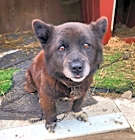
Burrito
Corgi Chihuahua
Male, 8 yrs 4 mos
Los Angeles, CA
Not good with dogs
Not good with cats
Spayed or Neutered
Shots are up-to-date
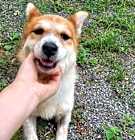
Salsa
Corgi Chihuahua
Female, 4 yrs 7 mos
Los Angeles, CA
Good with dogs
Not good with cats
Spayed or Neutered
Shots are up-to-date
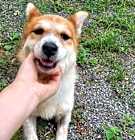
Salsa
Corgi Chihuahua
Female, 4 yrs 7 mos
Los Angeles, CA
Good with dogs
Not good with cats
Spayed or Neutered
Shots are up-to-date

Enchilada
Corgi Chihuahua
Female, 4 yrs 7 mos
Los Angeles, CA
Good with dogs
Not good with cats
Spayed or Neutered
Shots are up-to-date
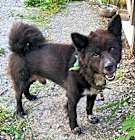
Taquito
Corgi Chihuahua
Male, 4 yrs 7 mos
Los Angeles, CA
Good with dogs
Not good with cats
Spayed or Neutered
Shots are up-to-date

Riggs
Corgi Spaniel (Unknown Type)
Male, 1 yr 4 mos
Valley Glen, CA
Good with dogs
Not good with cats
House-trained
Spayed or Neutered
Shots are up-to-date

Scotch - 12 pounds
Corgi Chihuahua
Male, 2 yrs
Valley Glen, CA
Good with dogs
Not good with cats
Spayed or Neutered
Shots are up-to-date
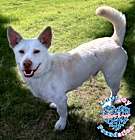
Bemo COH
Corgi
Male, 1 yr
Inglewood, CA
Good with dogs
Not good with cats
Spayed or Neutered

Burrito
Corgi Chihuahua
Male, 8 yrs 4 mos
Los Angeles, CA
Not good with dogs
Not good with cats
Spayed or Neutered
Shots are up-to-date

Salsa
Corgi Chihuahua
Female, 4 yrs 7 mos
Los Angeles, CA
Good with dogs
Not good with cats
Spayed or Neutered
Shots are up-to-date

Salsa
Corgi Chihuahua
Female, 4 yrs 7 mos
Los Angeles, CA
Good with dogs
Not good with cats
Spayed or Neutered
Shots are up-to-date

Enchilada
Corgi Chihuahua
Female, 4 yrs 7 mos
Los Angeles, CA
Good with dogs
Not good with cats
Spayed or Neutered
Shots are up-to-date

Taquito
Corgi Chihuahua
Male, 4 yrs 7 mos
Los Angeles, CA
Good with dogs
Not good with cats
Spayed or Neutered
Shots are up-to-date

Riggs
Corgi Spaniel (Unknown Type)
Male, 1 yr 4 mos
Valley Glen, CA
Good with dogs
Not good with cats
House-trained
Spayed or Neutered
Shots are up-to-date
